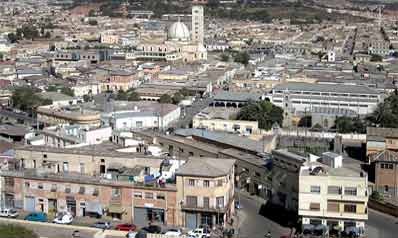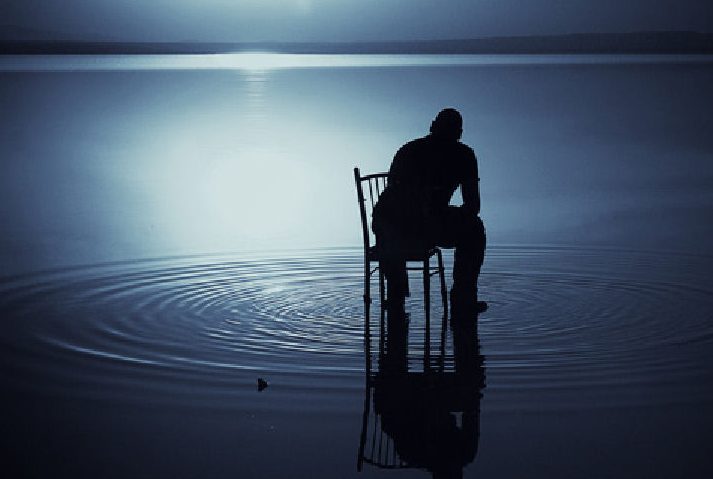Why Democratic Coup Is The Best Option For Eritrea

Over the past several months, I have been posting disjointed pieces at the Awate Forum and on my Facebook page that are my vision for transition in Eritrea. This edition of Alnahda is an attempt to consolidate my view for bloodless (or minimum bloodshed) transition in Eritrea.
I. An Arguable Premise
Eritrea is car stuck in a ditch, a tire gone flat. The driver was drunk-driving. What is the penalty for the driver, can we get diagnostics of the car, better training manual for new driver, better navigation system for the car, etc, are all important, but not a priority. The priority is to remove the driver, push the car out by applying only enough pressure to get the car out of the ditch, use a temporary (donut) tire, go straight to a tire store to get one designed for more miles.
Similarly, whether Eritrea is where it is because of a “chauvinist culture”, our “superior attitude” borne from Italian acculturation, our “ghedli culture,” meaning the revolutionary ethos (the “root cause” argument) are all paralyzing. This is because they were not built overnight and it will take years, maybe decades, to alter them.
Who is responsible? One man, alone, can’t run a grocery store, much less an entire country. So, Isaias Afwerki and his Enforcers are responsible. If you want to use a short-hand answer and say the responsible party is “PFDJ”, go ahead, if that is based on the tactical consideration that everybody hates PFDJ. But you will be stuck when Isaias Afwerki says he is dissolving the party. Also, you are implying that there is an organization with a hierarchy based org chart in Eritrea when there is no such thing. Also, you are a fighter for justice and the minimum requirement of that is that you don’t accuse people of crimes without evidence. The Isaias Afwerki Regime is a more accurate description; Isaias Afwerki and his handful of enforcers is an even more precise description.
II. What Should We Do?
Of all the options—waiting for Isaias Afwerki to reform; waiting for him to die; conducting a full-fledged civil war to overthrow him—the most palatable is a democratic coup. What does “democratic coup” even mean: isn’t that a contradiction in terms? A democratic coup is an overthrow of an authoritarian to institute a democracy. It is a form of a “controlled burn” in the parlance of the fire department. It means that members of the Eritrean Defense Forces (EDF) demand the resignation of Isaias Afwerki and, failing his resignation, arrest him pending a duly-constituted court passing judgment on him. The steps:
(1) Members of the Eritrean Defense Forces, in co-ordination with Diaspora-based Eritrean change agents, execute the change.
(2) The role of the Diaspora Eritreans is two fold (a) Guarantors: to give reassurances that we Eritreans have no quarrels with anyone who is not a voluntary enabler of the regime; (b) Rehabilitating: to take a group of people who have been conditioned from years of propaganda that their own people are Enemies of the State and to align their thinking. (In special education, they call this “mainstreaming.”)
(3) Part of the mainstreaming includes conditioning any change on the formation of a provisional unity government that is representative of Eritrean diversity. And, no, by that I don’t mean just ethnic, religious, regional diversity but political diversity. And, no, I am not talking a month after the democratic coup, but the day after.
(4) As all sorts of sharks smelling blood will be congregating, it is important that everybody agrees that we have ONE and ONLY one Eritrean Defense Forces. All those with military capabilities must suspend their activities immediately—the way the ELF and ELF-RC did immediately after the EPLF entered Eritrea.
(5) The Chief Commanding Officer of the EDF is—provisionally—the chair of the committee that engineered the democratic coup. The chair reports to the committee and the committee is tasked with implementation of the 1997 Constitution provisionally (because we have to have law and order while drafting a new formula for law and order) and party-formation and electoral laws and securing the funding for the immediate (a) demobilization and reintegration of the National Service; (b) the repatriation of refugees as well as (c) drawing a pension plan for the aging civil servants.
(6) The Committee is responsible for the implementation of border demarcation between Eritrea and Ethiopia in accordance with EEBC, which, as the EEBC Judges repeatedly said, doesn’t preclude the two countries voluntarily swapping territories. (What the judges objected to was one party conditioning the demarcation on territory swaps.) This is followed by immediate normalization of relationship between Eritrea and Ethiopia.
III. What We Should Not Do
The path we are on now says: the escalating abuse of the tyrant will be met with escalating resistance. At the urging (or acquiescence) of the Nehna Nsu gang and arrogantly holding to the view that he can outlast, outfox everybody, Isaias Afwerki becomes more sadistic; and we in the opposition increasing our ranks and getting more radicalized and demanding more preconditions. Our neighbors—two large countries—Sudan and Ethiopia are, right now, not as actively involved as they can be. The government of Sudan has essentially bought for itself security in its eastern border by placating Isaias Afwerki; the government of Ethiopia has essentially bought for itself a quieter northern border by adopting a strategy of disproportionate response to any pinprick from its northern neighbor.
But this may not hold out for long. If there is a change in Sudan’s policy—including as a result of change in government—Eastern Sudan may become unstable. If Ethiopia feels that it’s optimum time to conduct a “once-and-for-all” military strike then it is war and there is no such thing as a “neat war.”
Regardless of the scenario, whether from Ethiopia or Sudan, it means one thing: Eritreans are no longer in charge of Eritrea’s fate. It means more displacement, more war and more destruction. It means the beginning of a cycle of violence and revenge. It means an utterly failed state simply because Eritreans have already become experts at one thing: mass exile.
It seems to me, that the strategy we in the opposition have now is a strategy of opposing and strategy of resistance. We are reacting and when one reacts, one does not control the agenda. Those who say that, “we are not going to speak to anybody in the PFDJ system” should remember that in whatever else scenario—whether it is coming from a well-armed, well-organized opposition army, whether it is coming from Ethiopia, whether it is coming from American drones, at the end of the day, if we are not talking to those who are “in the system”, those who will bring the change will. And this is in the best case scenario. In the worse case scenario, then there is “total victory”—with the entire EDF/PFDJ/Government system completely collapsing, creating a total vacuum that will be filled by whoever is victorious.
(IV) Conclusions
While some of my views have evolved (with input from compatriots and developments in the world), one part has not: we are a small country and we have been, since 1970, on a continuous path of ostracization and we need reconciliation. This website has carried the mantra of “reconciliation” (even before it developed “inform, inspire, embolden”) and it has always been asked “who reconciles with whom” and our answer has always been “everybody reconciles with everybody.”
Our strategy should focus on returning Eritrea to a state of normality with as little bloodshed and as little disruption to the life of Eritreans as possible. This, to me, means a “democratic coup.” Does that mean that if Isaias Afwerki was to tender his resignation voluntarily I would consider all our problems solved? No, but I would consider 80% solved and we can work, together, on the other 20%.



Awate Forum